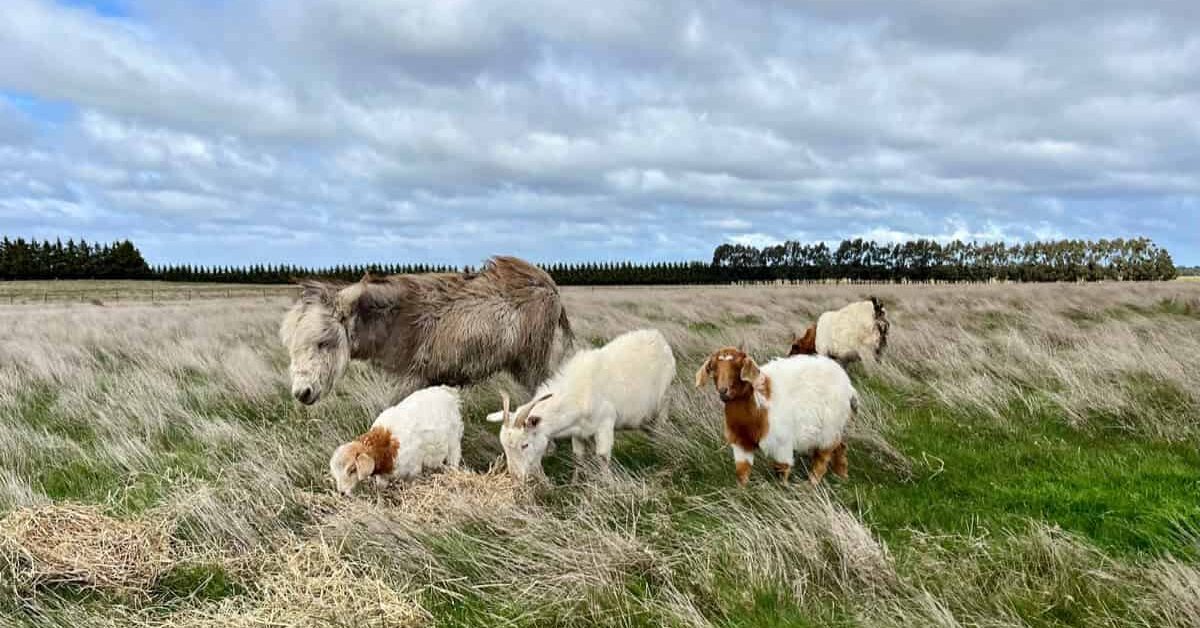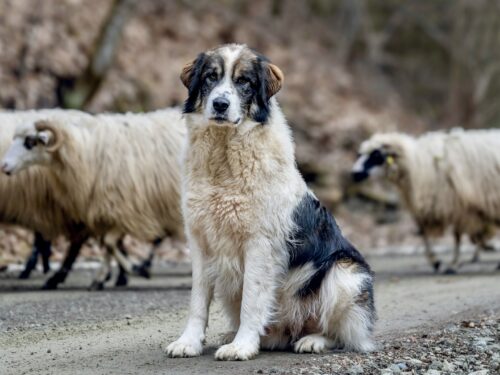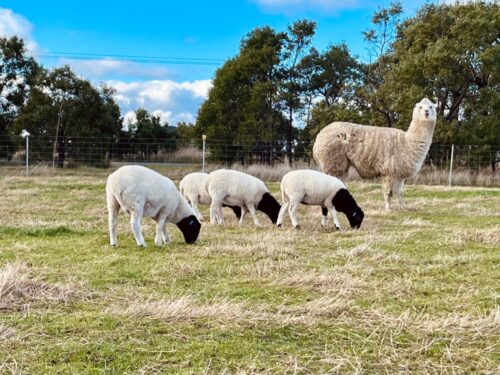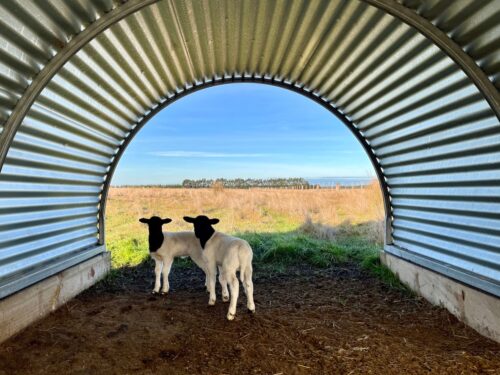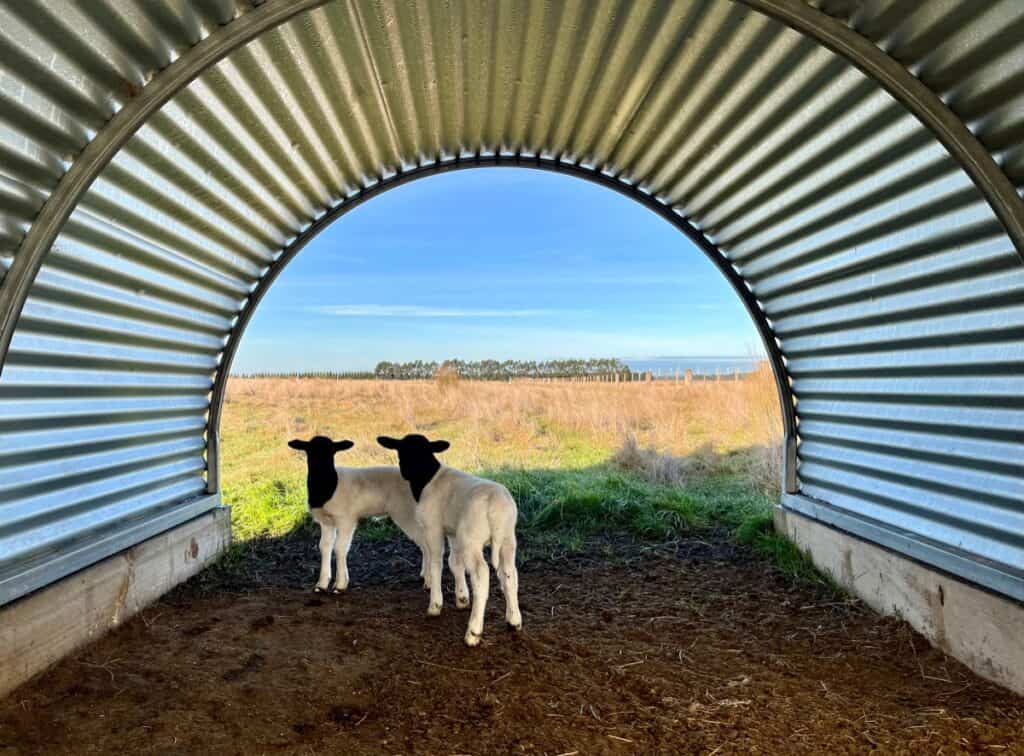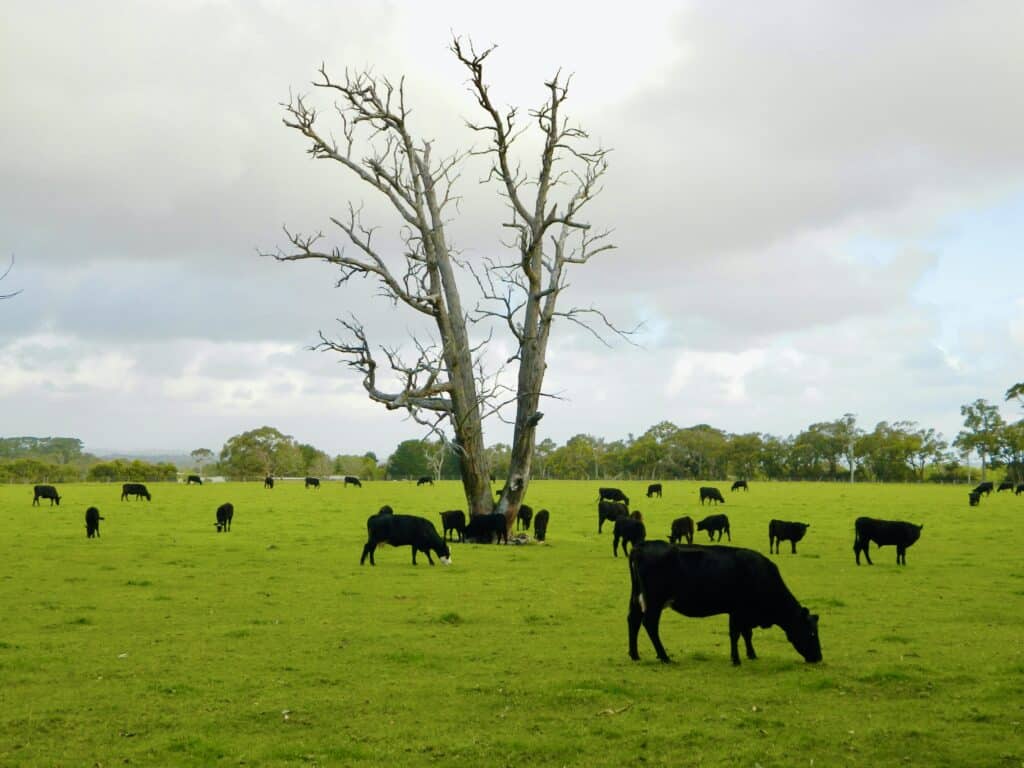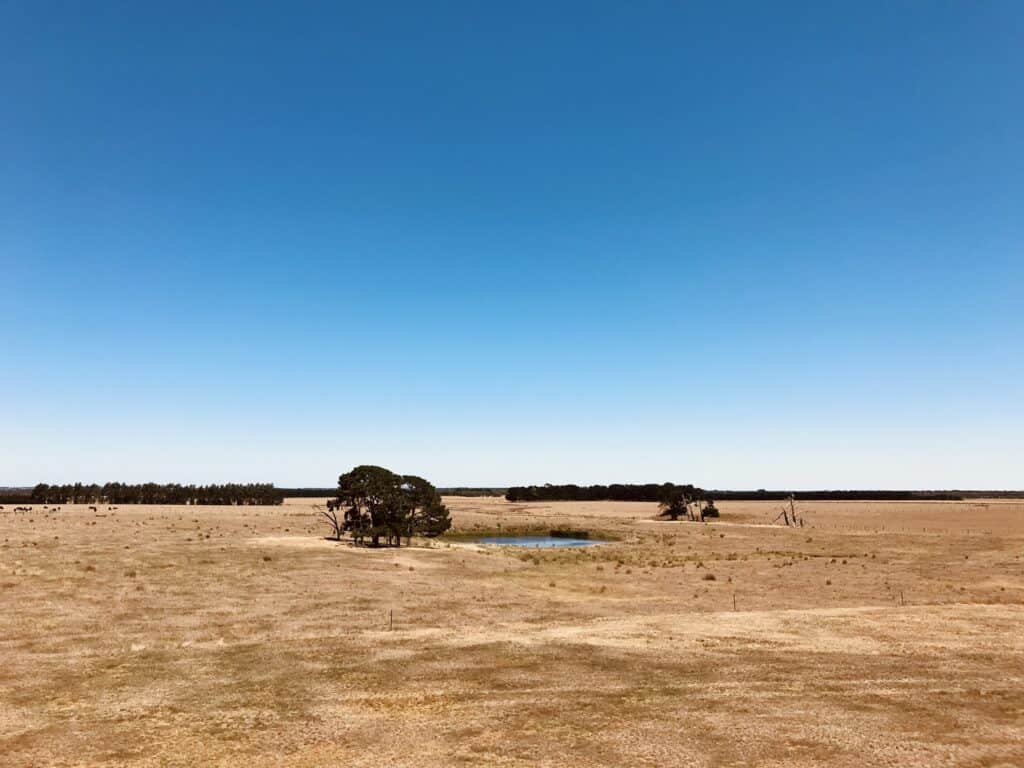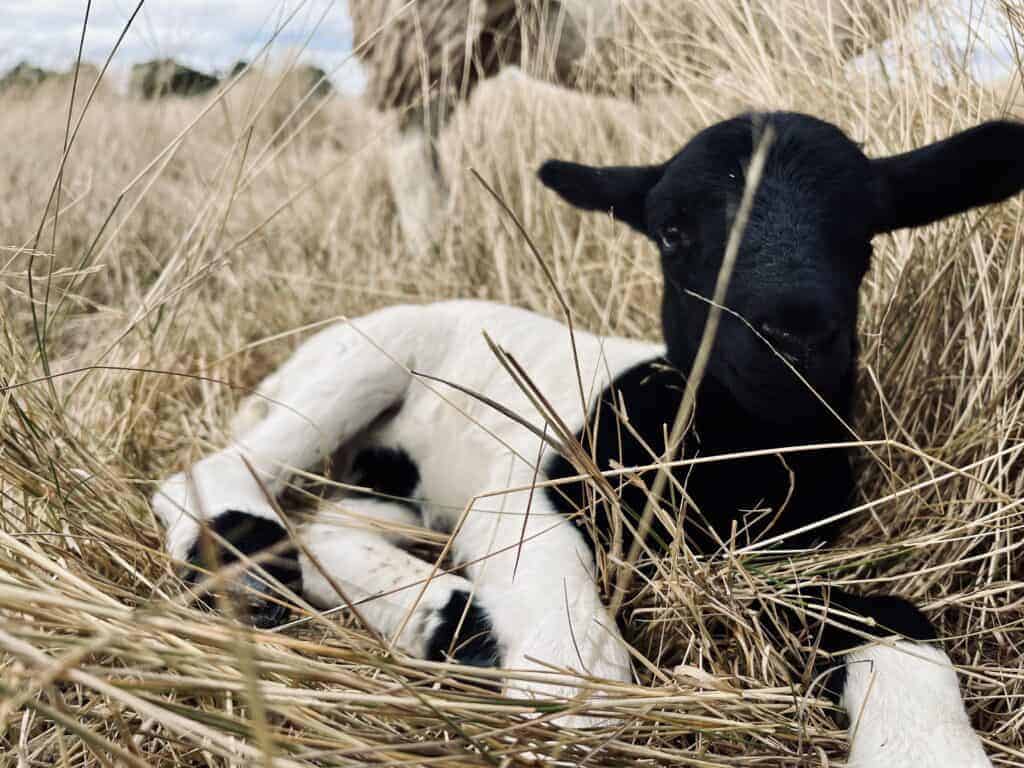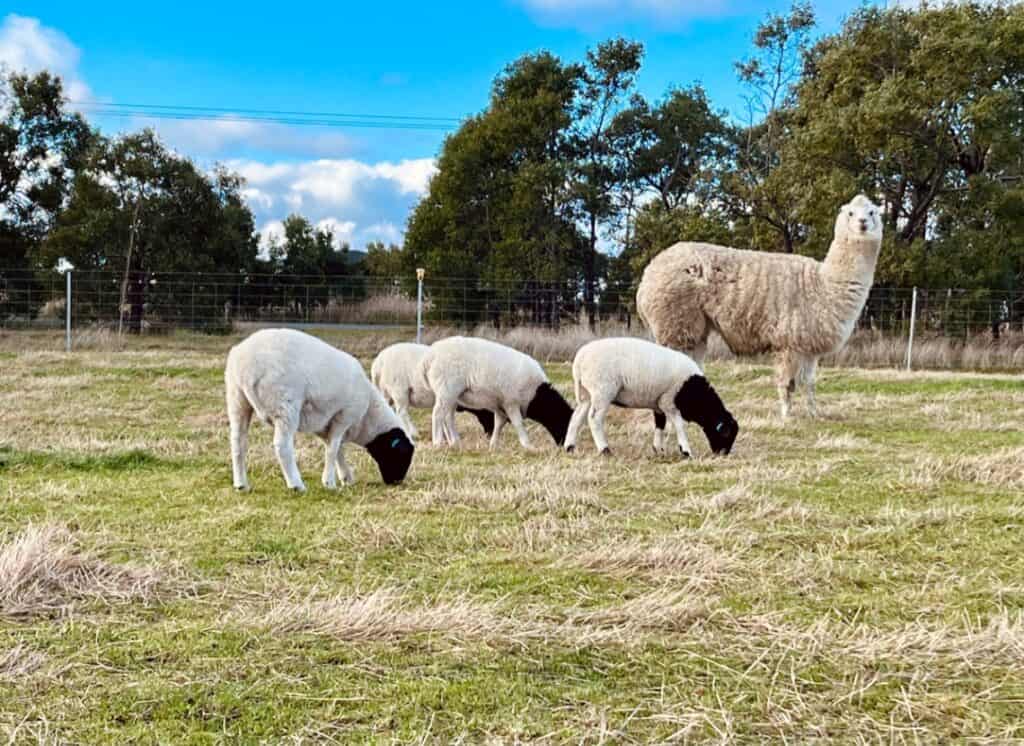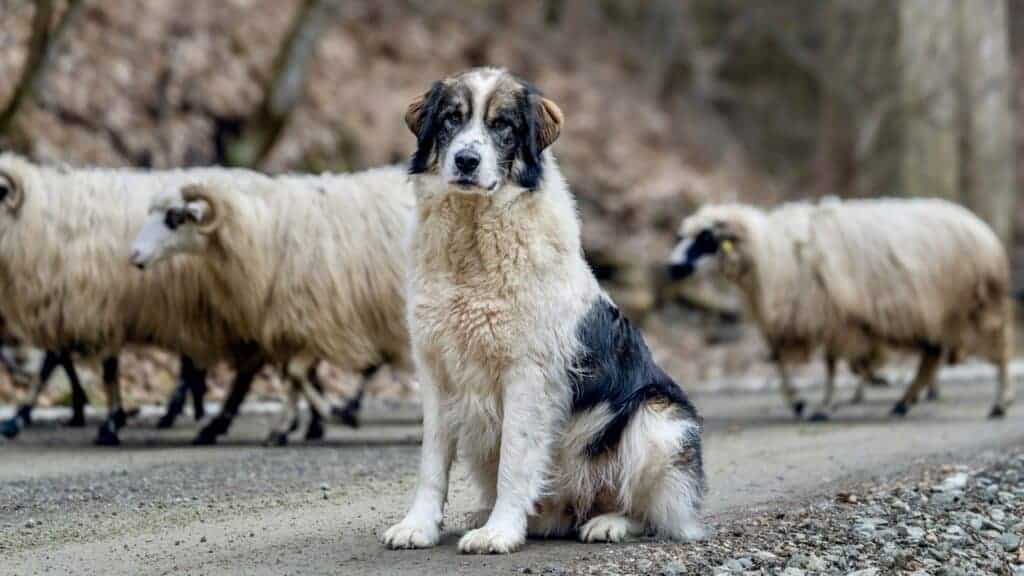Why choose a livestock guardian donkey?
Livestock guardian donkeys can make exceptional livestock protectors.
Donkeys have extraordinary hearing and keen eyesight. These attributes provide early detection of intruders, giving the donkey time to position themselves between the predator and the herd. Donkeys will aggressively hunt trespassers until they have fled or are destroyed. Using their hooves to stamp and teeth to bite their target.
Unlike some livestock guardian animals, donkey’s haven’t been bred specifically for the task and most of the ‘guardian’ attributes we see in them are instinct.
They are instinctively territorial and have an inherent hatred for members of the dog (canid) family including coyotes, domestic dogs, dingoes, foxes and wolves. It is their dislike of canids and not necessarily their instinct to protect other animals that make them a suitable livestock guardian animal.
It can be difficult for a donkey to distinguish a canid predator from an unassuming pet dog. Caution should be taken to either: keep pets seperate from a guardian donkey or through slow introductions have the donkey learn to tolerate the pet.
The longer a donkey resides within a herd the more likely they will bond . Bonding early in life can also have a positive affect on a donkeys success as a guardian animal.
In parts of Australia, where wild donkeys have become a problem, there are shelters who capture and train wild donkeys to become guardian animals. They use a variety of methods to bond the donkey with mobs of sheep.
What is the cost and maintenance of a livestock guardian donkey?
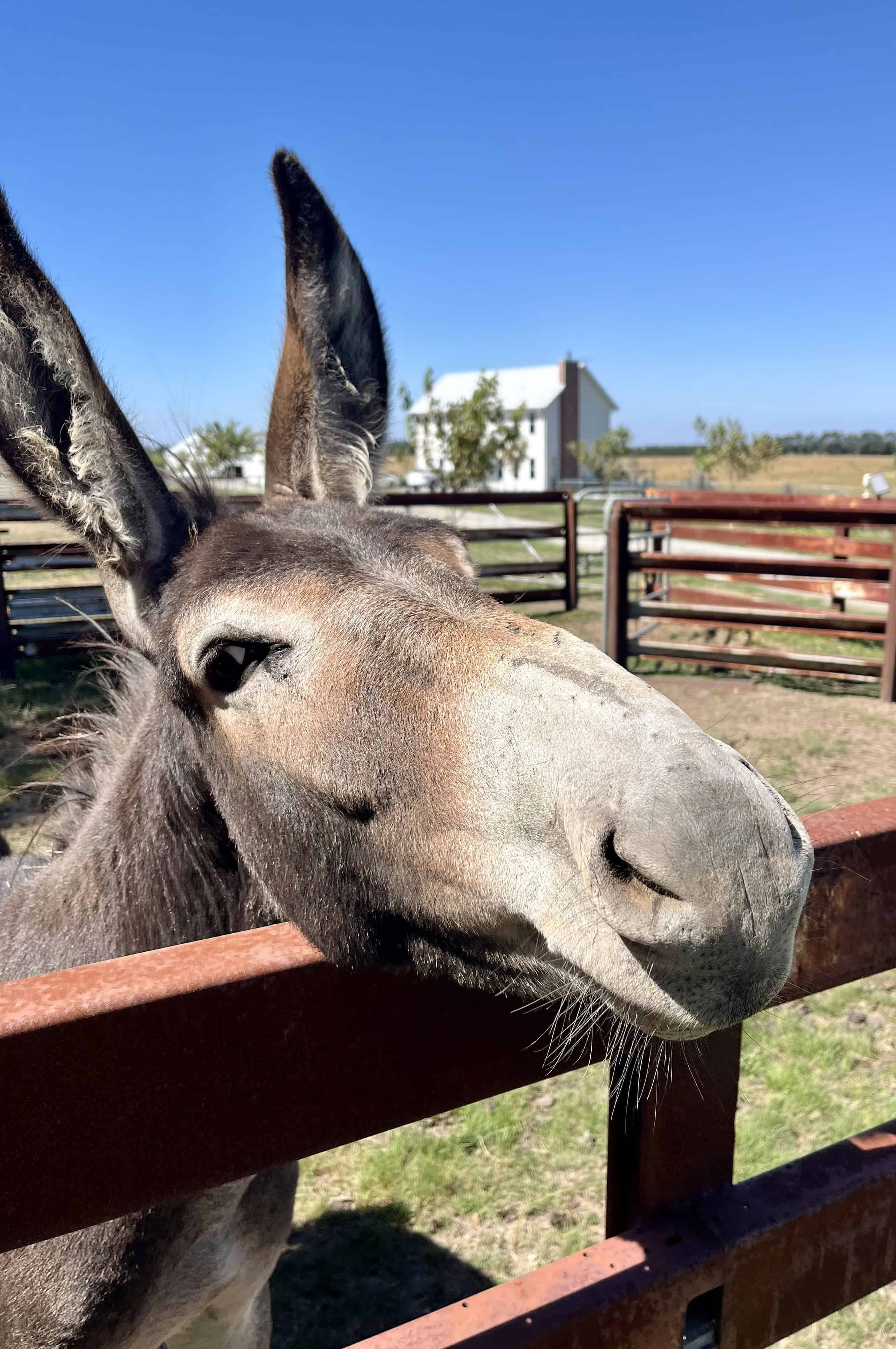
The cost of purchasing a donkey varies greatly across different regions. Geldings (castrated males) can often be found on the cheap, but expect to pay a fair bit more for a Jenny (female).
Donkeys for the most part will eat the same pasture as other livestock, so ongoing food cost isn’t much of a concern. They do need roughage included in their diet; choose a low sugar hay.
They are hardy and adaptable to most conditions. In cold climates it is worth providing a shelter for them to get out of the rain.
Guardian donkeys will need their hoofs attended to by a farrier; generally once every three months but this can be dependant on terrain.
Do male or female donkeys make the best livestock guardian?
Jennies (females) and Geldings (castrated males) are preferred for keeping as a guardian animal. Jacks (intact males) can vary greatly in personality and behaviour. Jacks can often be aggressive toward humans and other animals, while some have been known to kill newborn lambs and kids (goats) assuming they are trespassers.
Depending on the predators you are protecting a miniature donkey may or may not be a possibility. Miniatures will chase down foxes and small dogs but anything larger and you are likely to be putting the donkey itself in harms way and are better off with a standard sized donkey.
How many guardian donkeys do you need?
It’s suggested that running a single donkey in a herd of sheep or goats is ideal.
Donkeys prefer to socialise with their own kind and can refuse to bond with other animals. If multiple donkeys are present they will generally break away into a herd of their own providing little care when it comes to the protection of other livestock.
The issue here is that a sole, lonely donkey can be very loud and boredom can make them difficult to handle.
What predators will a livestock guardian donkey defend against?
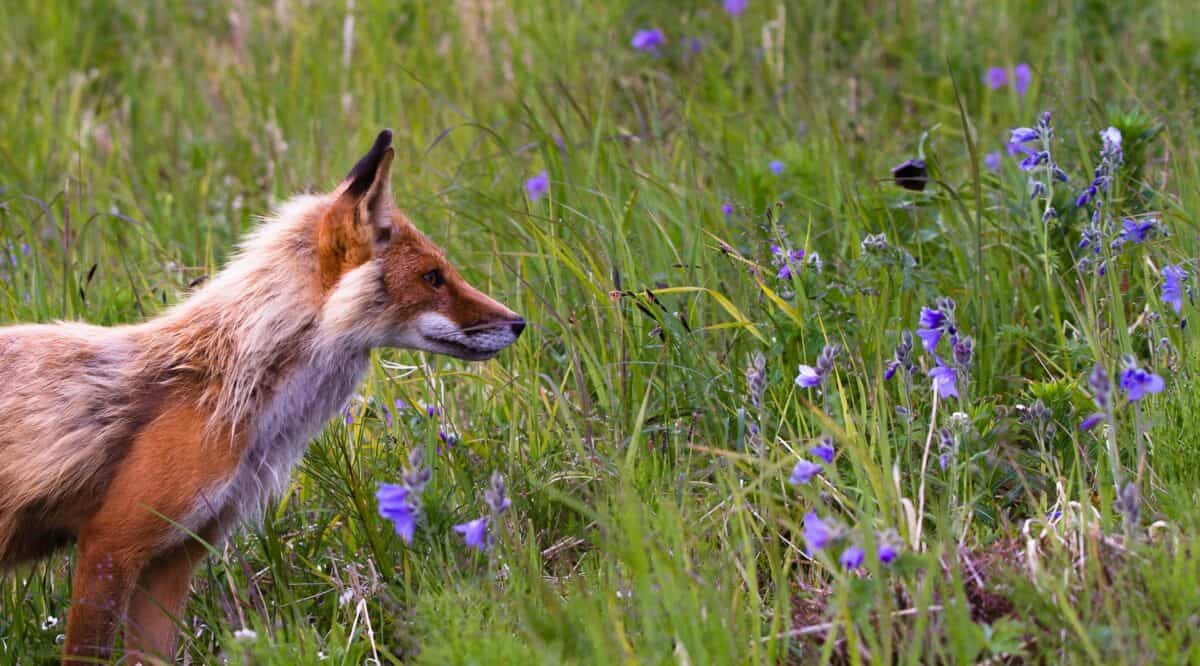
Photo by Dana Critchlow on Unsplash
A full size donkey has the capacity to protect a herd against attacks from small to medium size predators. These include foxes, wild dogs, coyotes, eagles and the occasional wolf.
There are some reports of donkeys successfully protecting their herd from bear attacks. This isn’t common and attacks from large predators such as bears, lions or pack strikes from wolves is more than likely going to end badly for the donkey.
If you are looking for potential livestock guardians and live in a region with large predators it is worth considering a livestock guardian dog (LGD).
Miniature donkeys do not make great livestock guardians but can be used in regions that only have concern with small predators like foxes.
Pro’s and Con’s of a livestock guardian donkey
Pro’s
- Hardy and adaptable to most climates
- Lower ongoing costs compared to other livestock guardians
- Keen hearing and eyesight provides and early alert of predators
- Generally friendly to humans
- Long lived (27 to 40 years)
Con’s
- Price varies drastically across regions – geldings and females can be costly upfront
- Some individuals aren’t interested in protecting or bonding with other species of livestock
- Can be loud and destructive if kept alone and bored
- Farrier required at least every three months to attend to the donkeys hooves
Guardian Donkeys at Silverholme
After we brought our first donkey, Forrest, home to the farm we bonded quickly. Donkeys are very affectionate if you take your time and earn their trust. The issue this caused was that he became very protective over me. Forrest would position himself between Pippa, our terrier, and I. Not allowing Pippa to get near me.
Donkeys are well know for chasing and often catching dogs and foxes that trespass their paddock. They will pin them to the ground and trample them. I have watched our donkeys chase a fox around in circles until it manages to find an escape route.
Our challenge with Forrest has been his rough and tumble play with the ewes and does. He will role them around on the ground and bite at their necks. It is not aggressive, this would be how he would play with another donkey. Yet for the small, less robust livestock who are often pregnant, this is a problem.
We do however, during lambing season house Forrest in a paddock adjacent to the lambing paddock. It does seem that foxes are deterred by the scent of a donkey. Our lamb losses to fox predation reduces to near nothing when we use this paddock setup.
Forrest is an intact male and we have since bought a female donkey to evaluate the differences. So far she has a more placid temperament and doesn’t terrorise the other livestock. She proves much harder to bond with.
Other Livestock Guardian Animals
If you’re not sure a donkey suits the livestock guardian needs of your farm or homestead there are some other animals that may prove to be more suitable.
Livestock Guardian Dogs (LGD’s) have been successfully used as stock guardians around the world for centuries and the popularity of the livestock guardian alpaca or llama as a lower cost option when protecting against smaller predators.
Livestock Guardian Dogs (LGD’s)
Livestock Guardian Alpacas and Llamas
Best Livestock Guardian Animal for Lamb and Sheep
Share
